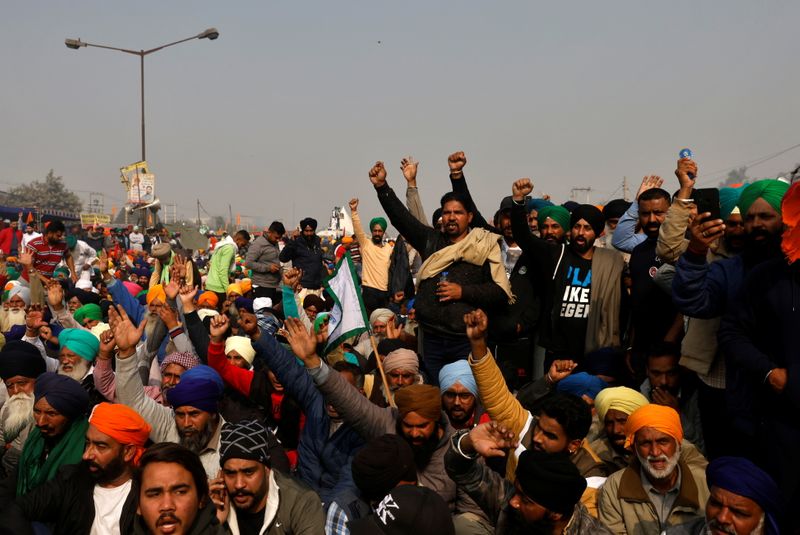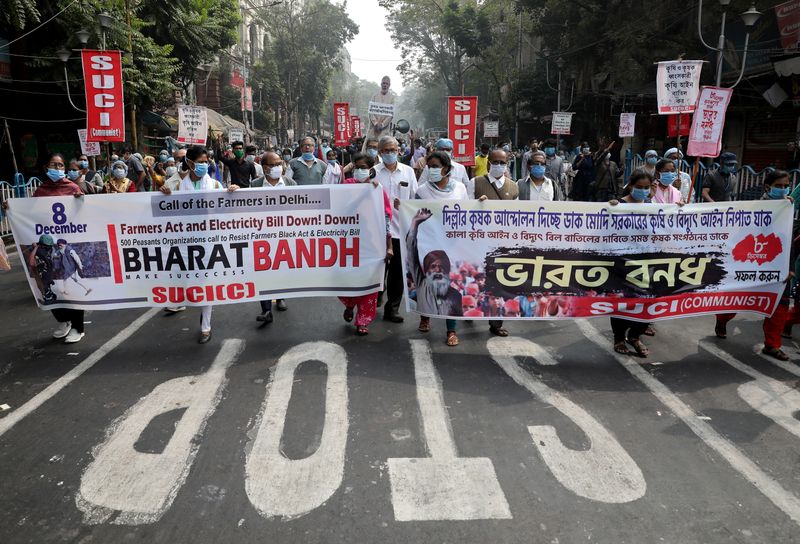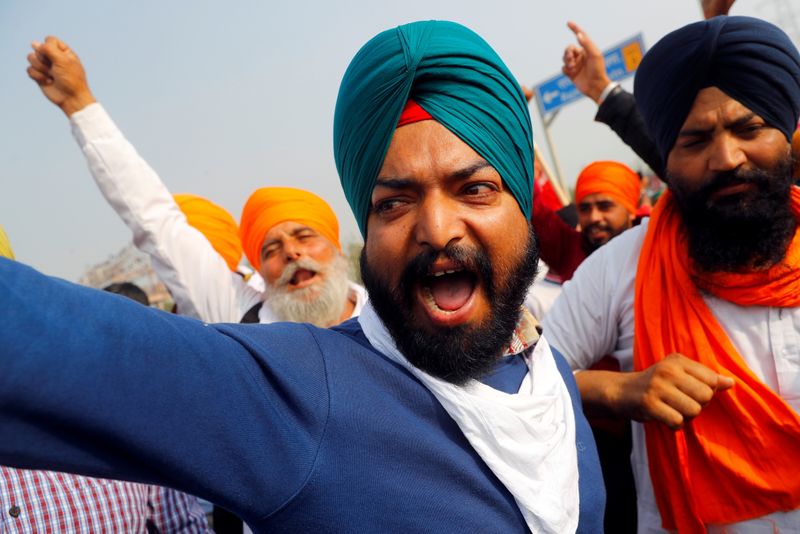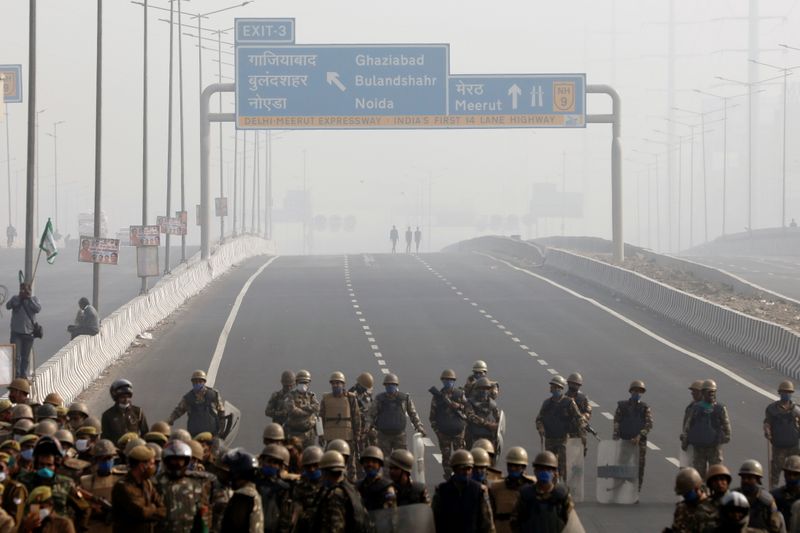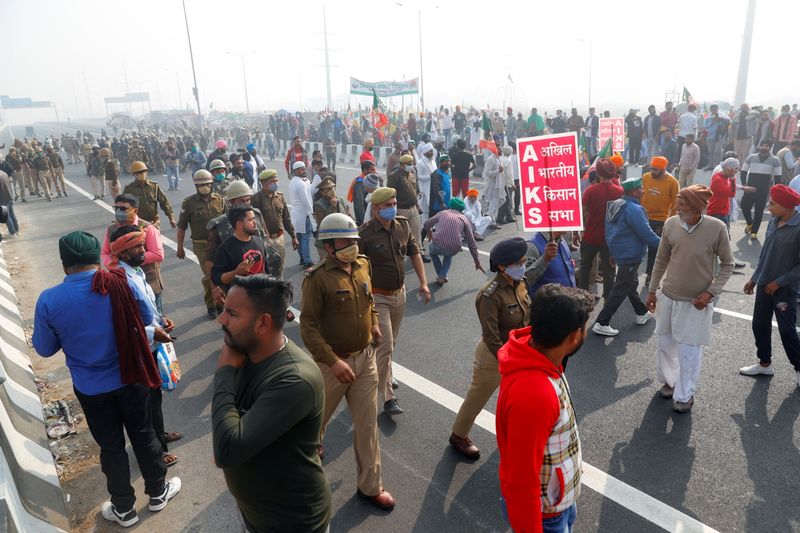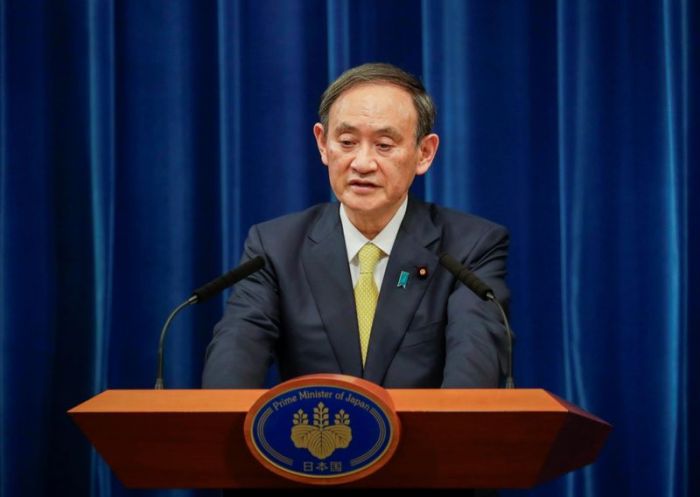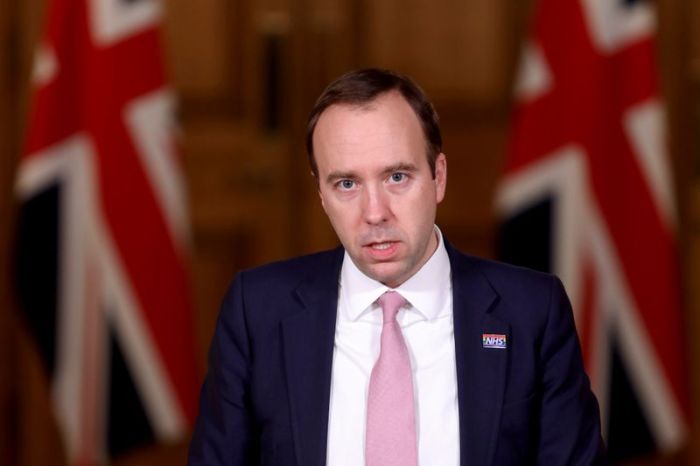NEW DELHI/MUMBAI (Reuters) – Farmers’ protests against new laws liberalising agricultural markets spread across India on Tuesday, as farm organisations called for a nationwide strike after inconclusive talks with Prime Minister Narendra Modi’s government.
In eastern and western states, farmers blocked roads and squatted on railway tracks, delaying hordes of people getting to work, and preventing perishable produce from reaching markets.
Farmers from the northern states of Punjab and Haryana, neighbouring New Delhi, have been at the vanguard of the agitation since last month, and have set up protest camps in and around the capital.
“We will not allow the government to change the rules because they want to hurt farmers’ income by filling the pockets of big companies,” said Gurwinder Singh, a 66-year-old farmer from Punjab, a state known as the food bowl of India.
The reforms enacted in September loosened rules around the sale, pricing and storage of farm produce that have protected farmers from an unfettered free market for decades.
Assured of floor prices, most currently sell the bulk of their produce at government-controlled wholesale markets, known as mandis.
The ruling Bharatiya Janata Party (BJP) has said the reforms would not hurt farmers’ incomes. More talks between the government and farmer organisations are due on Wednesday.
Home Minister Amit Shah late on Tuesday invited leaders of protesting farmers’ unions for talks.
“Most likely, the government on Wednesday will give a written proposal about the likely amendments in the laws. Once we receive the proposals, we will examine them,” farmers’ leader Hanan Molla told reporters after the meeting.
Social media has fanned sympathy for the farmers’ cause among the Indian diaspora abroad. During recent days, thousands of people have protested in support of the farmers outside the Indian embassy in central London.
During the coronavirus pandemic, protest sites around New Delhi have turned into camps, with entire families cooking and sleeping in the open and Sikh religious organisations were providing them with face masks, water and food.
(Reporting by India bureau; Writing by Rupam Jain and Mayank Bhardwaj; Editing by Simon Cameron-Moore and David Gregorio)

